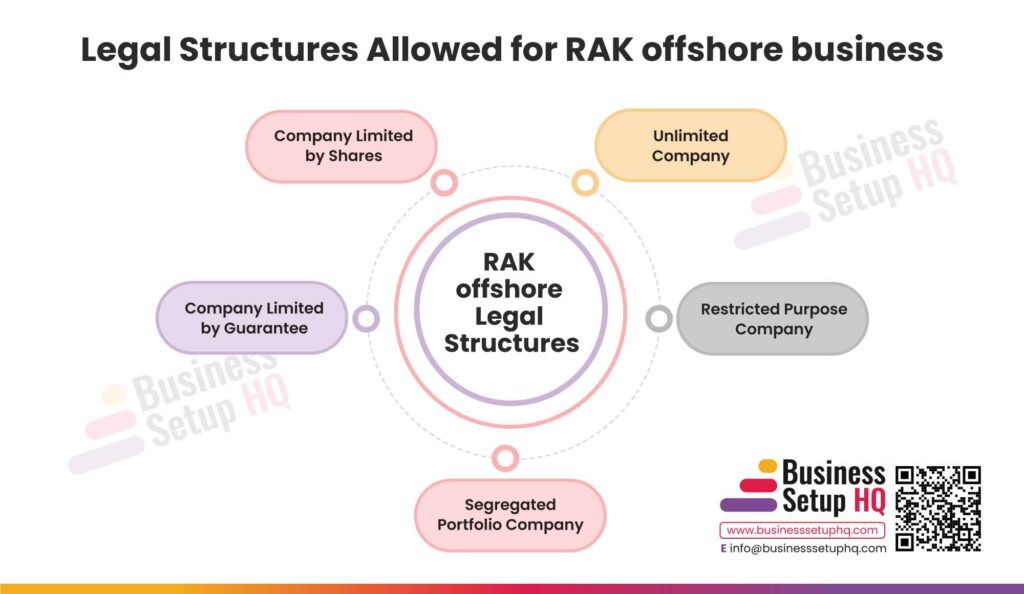Recognizing the Refine of Offshore Company Formations: A Step-by-Step Overview
Offshore firm formations involve a series of methodical steps that require cautious factor to consider. Picking the appropriate territory is vital, as it impacts lawful conformity and tax obligation benefits. Following this, one have to select a proper business framework and prepare essential documents. Each stage provides its own difficulties and complexities, making it vital to understand the procedure thoroughly. The complexities of maintaining conformity and guiding through guidelines will soon become evident.
Selecting the Right Territory
When selecting a jurisdiction for offshore business formation, exactly how does one identify one of the most appropriate choice? Numerous elements must be taken into consideration to guarantee ideal advantages. Mainly, potential company owner should examine the jurisdiction's online reputation and stability. A well-regarded location enhances reliability and might draw in investors. Additionally, tax policies play a considerable duty; some territories supply desirable tax obligation rates or exemptions, making them appealing for long-term financial planning.Legal and governing frameworks are additionally important. A territory with straightforward compliance processes can assist in smoother operations. Moreover, the availability of specialist services, such as lawful and audit support, can streamline continuous management.Lastly, geographical factors to consider, consisting of time zone compatibility and access, need to not be neglected. By evaluating these vital aspects, entrepreneurs can make educated choices, choosing the jurisdiction that aligns finest with their particular business objectives and functional needs.
Comprehending Lawful Needs
Understanding the lawful requirements for offshore firm formation is vital for business owners seeking to navigate the complexities of international organization. Each territory has its own certain regulations and conformity responsibilities that should be stuck to for a successful setup. Trick considerations consist of enrollment processes, capital demands, and ongoing coverage obligations. Entrepreneurs should likewise know taxes effects and any kind of potential double taxation treaties between their home country and the offshore jurisdiction.Additionally, it is necessary to comprehend the regional regulations bordering organization procedures, including labor regulations and licensing requirements. Failure to conform with these legal terms can cause fines, consisting of fines and even dissolution of the firm. Therefore, seeking lawful assistance or speaking with an expert company focusing on offshore formations can assist ensure that all legal requirements are fulfilled, ultimately helping with a smoother establishment and operation of the overseas entity.

Selecting Business Framework
When picking a firm framework for overseas developments, individuals have to think about numerous types offered, each offering distinctive advantages. Legal considerations and compliance needs play a crucial function in figuring out one of the most suitable alternative. Furthermore, understanding tax ramifications and benefits can considerably influence the decision-making process.
Types of Business Structures
Selecting the right business structure is a necessary choice that can substantially affect the procedures and tax obligation commitments of an overseas service. There are numerous kinds of business frameworks readily available for consideration, each with its one-of-a-kind advantages and drawbacks. The most common frameworks consist of restricted liability companies (LLCs), which give responsibility security and adaptability in administration; companies, which offer solid property protection and can bring in investors; and partnerships, which permit common obligations and earnings amongst companions. Furthermore, single proprietorships are a choice for individuals looking for full control however with personal liability. Comprehending these structures aids local business owner make educated choices that straighten with their goals and operational requirements while enhancing tax obligation efficiencies.
Lawful Factors To Consider and Compliance
Exactly how can company proprietors ensure they fulfill lawful needs while choosing an overseas firm framework? This involves recognizing the certain regulations and compliance responsibilities connected with numerous territories. Local business owner must carry out detailed study to identify the lawful effects of various business kinds, such as limited responsibility business (LLCs) or international service firms (IBCs) Consulting with legal specialists experienced in offshore developments is vital to browse intricate legislations. In addition, they must determine the picked framework aligns with their company goals and functional demands. Conformity with neighborhood laws, consisting of enrollment, reporting, and governance requirements, is important to avoid lawful problems. Correct documentation, transparency, and adherence to international criteria even more improve the legitimacy and sustainability of the overseas entity.
Tax Obligation Ramifications and Advantages
When selecting an offshore firm framework, organization proprietors frequently run into significant tax obligation implications and advantages. The choice of framework-- whether a restricted responsibility partnership, corporation, or company-- directly influences tax obligation commitments. As an example, some territories supply beneficial tax prices or exemptions for specific sorts of entities, which can reduce overall tax obligation liability. Additionally, overseas firms might provide chances for tax deferment, enabling earnings to expand without immediate taxes. Nevertheless, it is essential to comprehend the regional tax obligation policies and any kind of worldwide tax obligation treaties that may apply. Properly structuring the business can additionally help with property security and revenue diversification, making it important for local business owner to talk to tax obligation professionals to navigate these intricacies efficiently.
Preparing Necessary Documents
A detailed set of papers is essential for the successful formation of an overseas firm. These records generally consist of a memorandum and write-ups of organization, which lay out the company's structure and laws. Recognition papers for all investors and supervisors are also required, typically consisting of a ticket or nationwide ID. Evidence check over here of address, such as utility bills or bank declarations, is essential to validate the identities of these individuals.Additionally, a detailed business strategy might be requested to make clear the designated activities and the functional structure of the business - offshore company formations. Some jurisdictions might call for a declaration of beneficial possession, exposing the true owners behind the firm. It is necessary to ensure that all documentation abides by regional legislations and regulations to stay clear of hold-ups. Proper prep work of these documents not only promotes a smoother development procedure yet likewise lays a strong structure for the firm's future procedures
Opening Up a Checking Account
After preparing the needed paperwork for the offshore firm, the following step involves opening a savings account to assist in financial operations. This account is important for handling funds, conducting deals, and guaranteeing smooth business operations.Selecting a suitable financial institution is essential; aspects such as the financial institution's credibility, costs, and solutions need to be very carefully thought about. Some financial institutions may require added documentation, consisting of identification, evidence of address, and organization plans. It is suggested to choose a financial institution that understands the one-of-a-kind needs of offshore companies.Once the option is made, the account opening process commonly includes sending the required records and going through a due diligence process. This might include history checks to comply with worldwide policies. After authorization, the overseas firm can access its financial services, enabling it to run successfully in the global market and handle its economic activities easily.
Preserving Conformity and Reporting Obligations

While developing an overseas company provides numerous advantages, maintaining compliance with worldwide and regional policies is important for its long-lasting success. Business need to be cautious in adhering to the lawful structures of the jurisdictions in which they operate. This consists of timely submission of yearly returns, monetary declarations, and any required tax obligation filings.In several situations, offshore entities go through anti-money laundering (AML) and know-your-customer (KYC) policies. Non-compliance can lead to serious fines, consisting of fines and criminal charges. In addition, involving a regional compliance officer or lawful expert can assist navigate the intricate governing landscape.Companies must likewise stay informed about modifications in legislation that may affect their operations. Regular audits and testimonials of interior processes can guarantee adherence to reporting commitments. Eventually, preserving conformity not only protects the business's credibility but additionally enhances its functional effectiveness and sustainability in the competitive international market.
Often Asked Questions
What Are the Prices Associated With Offshore Firm Development?

The length of time Does the Offshore Business Formation Refine Take?
The overseas business development procedure commonly extends from Related Site a couple of days to numerous weeks. Aspects influencing this timeline include jurisdiction laws, paperwork demands, and the efficiency of solution companies associated with the formation procedure.
Can I Run My Company in Multiple Nations?
Running an organization in several countries is possible, supplied one adhere to each territory's guidelines. International laws, tax commitments, and regional operational demands need to all be taken into consideration to ensure effective cross-border service activities.
Exist Tax Advantages for Offshore Companies?
The inquiry of tax advantages for offshore firms typically arises. Numerous territories provide reduced tax prices, exceptions, or rewards, which can cause significant cost savings. Laws and compliance requirements need to additionally be thoroughly taken into consideration.
What Happens if I Don't Adhere To Regulations?
Non-compliance with guidelines can bring about severe repercussions, consisting of substantial penalties, prospective criminal fees, and the dissolution of the firm. Regulatory authorities may likewise launch investigations, significantly influencing the company's credibility and operational abilities. Selecting the appropriate firm framework is an essential decision that can considerably impact the operations and tax responsibilities of an overseas business. Service proprietors should conduct extensive study to identify the legal ramifications offshore company formations of different business kinds, such as minimal liability firms (LLCs) or global organization companies (IBCs) Service proprietors often experience significant tax ramifications and advantages when picking an overseas firm framework. The prices included in offshore firm development normally consist of registration charges, legal expenses, yearly upkeep fees, and prospective taxes. The question of tax benefits for offshore firms frequently occurs.